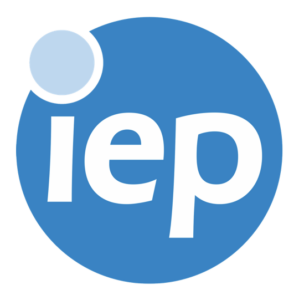IEP Award in Supporting Participants with Complex Needs
Who is this Program for?
- Frontline Practitioners and First-Line Managers.
- Anyone supporting individuals who require additional support in addressing their barriers to finding, competing for and sustaining work.
- Practitioners eager to start their journey towards becoming a catalyst for positive change and growth
Program Overview
Supporting participants with complex needs is an ever-increasing daily part of frontline practice. Be it mental health, physical or learning disabilities, addiction, lone parents, neurodiversity, or age, sexuality or cultural loneliness – this course looks at how to focus on the causes behind behaviour when facing those complex needs rather than those visible barriers to work.
This program aims to enable practitioners to develop the knowledge, skills and behaviours that underpin good practices and ensure high levels of quality standards when working with participants who require higher levels of support to find, achieve and sustain work. Throughout this qualification, we explore proven methods, models, frameworks and tools that can be used to help participants increase their motivation and confidence levels, and develop skills and capabilities whilst reducing ambivalence towards work.
By undertaking this learning, frontline employability practitioners can develop a comprehensive skillset to better understand, engage, and support participants with complex needs throughout their employment journey, ultimately enhancing their ability to deliver effective and impactful services.
Learners will receive a digital badge and Certificate of Achievement. They can use the AwardCN post-nominals after their name and will also appear on the IEP Register of Professional Practitioners.
Structure and Timings
This is a blended learning program with bronze, silver and gold awards.
Total qualification time is Bronze – 25, Silver – 40, Gold – 45.
Each module incorporates interactive virtual classroom sessions with supporting resources, video, podcasts, work-based learning, eLearning and skills rehearsal. There are formative assessments throughout each virtual, social and collaborative session with a final individual end-point assessment that allows learners to evidence their ability to apply the learning in a live environment.
Learning Delivery and Assessment Method
Bronze, Silver & Gold Awards
To achieve the Bronze Award, learners must attend and participate in all Social and Collaborative sessions (which includes pre-course reading) and successfully complete the skills rehearsal and assessment sessions.
To achieve the Silver Award, learners must attend and participate in all Social and Collaborative sessions (which includes pre-course reading), and complete a work-based learning consolidation activity for each session.
To achieve the Gold Award, learners must attend and participate in all Social and Collaborative sessions (which include pre-course reading), complete a work-based learning consolidation activity for each session, successfully complete the skills rehearsal and feedback sessions, and finally complete an end point assessment that demonstrate their application of the learning with a program participant.
Skills Rehearsal & Assessment
Gold learners, completing the virtual social and collaborative learning sessions will attend a skills rehearsal session designed to allow them to practice the skills and behaviours they have explored throughout the program. As a team, they will work with a corporate actor to apply the learning and receive feedback on their performance. After learners have attended the Skills Rehearsal Session, they will be invited to attend a One-to-One Assessment. Here they will have the opportunity to work with the corporate actor in a simulation to demonstrate and evidence their capability against the learning outcomes/assessment criteria of the qualification.
Subjects Covered
Awareness, Understanding, Equity
This session explores what we mean by ‘complex needs’ and the challenges faced when supporting participants with multiple or complex barriers to work. Here we begin to provide practical strategies to address these challenges effectively on a case-by-case basis. We will also unpack the effects of unconscious bias and stigma and understand its impact on self-esteem, confidence and overall employability. Finally, we look at how to mitigate this, and showcase the value of individualised, targeted support plans for participants who require additional support when returning to work.
The Trust Equation
In this session we focus on developing an understanding of the significance of trust on the practitioner/participant relationship and consider what can break trust – and the impact this can have. We will explore the trust model/equation, learn strategies for building trust, and more importantly, restoring trust when it has been broken. Further, we practice effective contracting to create a positive environment in which participants with complex needs feel safe and are able to work in partnership with their practitioner: to explore their unique circumstances and develop a personalised strategy to help them achieve their goals.
The Growth Curve
The aim of this session is to explore how we can best understand the unique needs of different participants. We will consider the significance of confidence and self-esteem for growth (and the triggers that can influence these), comfort zones and the impact of fixed mindset. There is a focus on how to develop strategies to nurture a growth mindset and what constitutes appropriate levels of support and challenge when working with participants with complex needs; empowering them to achieve personal growth and development.
Motivational Interviewing
In this transformative session, practitioners will gain the skills and insights needed to engage, inspire and empower participants to embark on a journey of positive change. Discover the art of fostering motivation, building confidence and supporting meaningful progress in even the most challenging circumstances. This session will equip you with the capability to recognise and understand participant ambivalence, increase motivation, encourage hope and transform lives, one conversation at a time.
Tools for Change
Unlock the door to positive change, helping participants build their self-esteem, boost their confidence and reignite their motivation. In this session we explore how to apply key concepts and frameworks covered in earlier modules to essential employability interventions such as CV writing and interview preparation. The focus of the session is to use tools to increase participant motivation, confidence and self-efficacy, whilst reducing dependence on the practitioner for support and empowering them to develop their own successful job search skills and strategies.
Navigating Feedback and Conflict
Effective communication is the key to transforming participants with complex needs. This session is a powerful resource for practitioners looking to gain essential skills: Providing constructive feedback; navigating difficult conversations; resolving conflicts with empathy and finesse.
Additional Resource – Signposting
This Microsoft Sway will provide practitioners with detailed information on how to go about signposting to specialist support and provision.
There will be a list of Corporate Affiliate Partners (CAPs) such as RNLI who offer employability resources for practitioners and participants.
There will also be information on other organisations which offer support.
Benefits of Learning
Understanding Barriers and Mitigating Challenges
Develop a deeper understanding of the barriers, stigma, and unconscious biases faced by participants with complex needs, and strategies to mitigate these challenges. This will help practitioners provide more empathetic and inclusive support, fostering trust and engagement with participants.
Effective Communication Techniques
Learn effective communication techniques, such as motivational interviewing and active listening, to explore participants’ concerns, values, and beliefs about employment. This can help practitioners better understand participants’ perspectives and tailor their support accordingly.
Creating a Supportive Environment
Acquire skills to create a safe and supportive environment that promotes personal growth, resilience, and a growth mindset among participants. This can empower participants to step out of their comfort zones and embrace change, increasing their confidence and self-efficacy in the job-seeking process.
Building Practitioner-Participant Relationships
Understand the importance of empathy, trust, and effective contracting in building strong practitioner-participant relationships. This can facilitate open communication, accountability, and partnership working, which are crucial for successful participant engagement and progression.
Handling Conflicts and Challenging Behaviours
Develop strategies to handle conflicts, provide constructive feedback, and diffuse challenging behaviours. This can help practitioners navigate difficult situations with participants more effectively, preventing escalation and maintaining a positive working relationship.
Understanding the Transition to Employment
Learn about the stages of change, motivational factors, and decision-making processes involved in the transition from unemployment to employment. This knowledge empowers practitioners to tailor their support and guidance based on each participant’s unique circumstances and readiness for change.
Insights into Labour Market Dynamics
Gain insights into labour market dynamics, recruitment processes, and job-matching techniques. This can enable practitioners to provide more practical and relevant advice to participants, increasing their chances of finding suitable employment opportunities.
Watch our learner videos!
Leon Larkings MIEP, Employment Advisor from FedCap and Julie Jacobs-Obodai MIEP, Employability and Skills Manager from Raven Housing trust give their feedback post completing the IEP Award in Supporting Participants with Complex Needs.
Answering questions such as:
How much more confident do you feel in your ability to support participants with complex needs?
Do you believe that this program can benefit practitioners in similar roles?
What aspects of the learning did you find the most valuable?
Pricing
Award in Complex Needs – Bronze
Award in Complex Needs – Silver
Award in Complex Needs – Gold
Potential discounts for volume, smaller organisations, charities, not-for-profits and self-funders are available. Please contact learning@iemployability.org to discuss.
Unit Rate
£350.00
£400.00
£450.00
Unit Rate (Inc VAT)
£420.00
£480.00
£540.00
.

